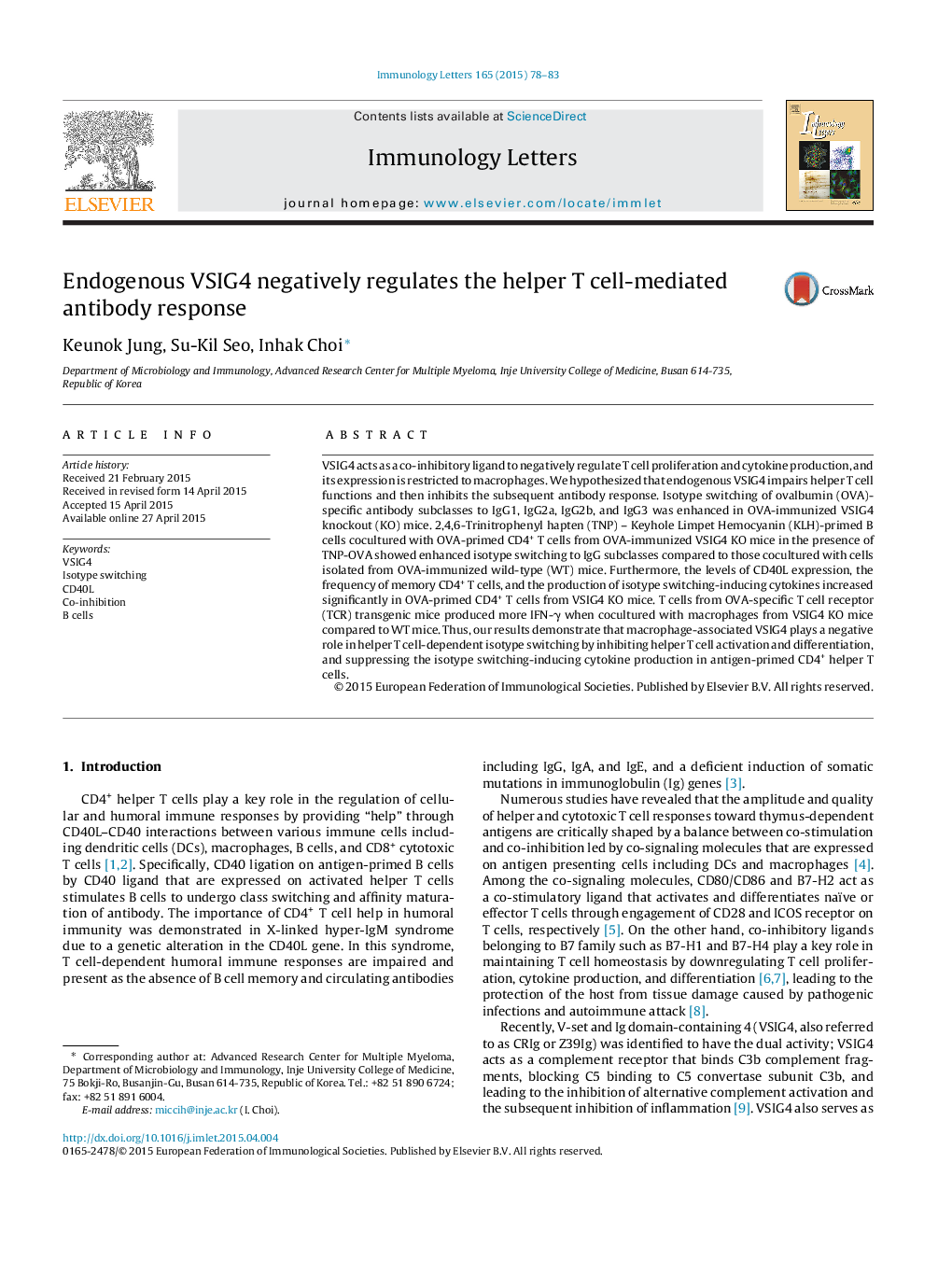| Article ID | Journal | Published Year | Pages | File Type |
|---|---|---|---|---|
| 6117229 | Immunology Letters | 2015 | 6 Pages |
Abstract
VSIG4 acts as a co-inhibitory ligand to negatively regulate T cell proliferation and cytokine production, and its expression is restricted to macrophages. We hypothesized that endogenous VSIG4 impairs helper T cell functions and then inhibits the subsequent antibody response. Isotype switching of ovalbumin (OVA)-specific antibody subclasses to IgG1, IgG2a, IgG2b, and IgG3 was enhanced in OVA-immunized VSIG4 knockout (KO) mice. 2,4,6-Trinitrophenyl hapten (TNP) - Keyhole Limpet Hemocyanin (KLH)-primed B cells cocultured with OVA-primed CD4+ T cells from OVA-immunized VSIG4 KO mice in the presence of TNP-OVA showed enhanced isotype switching to IgG subclasses compared to those cocultured with cells isolated from OVA-immunized wild-type (WT) mice. Furthermore, the levels of CD40L expression, the frequency of memory CD4+ T cells, and the production of isotype switching-inducing cytokines increased significantly in OVA-primed CD4+ T cells from VSIG4 KO mice. T cells from OVA-specific T cell receptor (TCR) transgenic mice produced more IFN-γ when cocultured with macrophages from VSIG4 KO mice compared to WT mice. Thus, our results demonstrate that macrophage-associated VSIG4 plays a negative role in helper T cell-dependent isotype switching by inhibiting helper T cell activation and differentiation, and suppressing the isotype switching-inducing cytokine production in antigen-primed CD4+ helper T cells.
Related Topics
Life Sciences
Immunology and Microbiology
Immunology
Authors
Keunok Jung, Su-Kil Seo, Inhak Choi,
